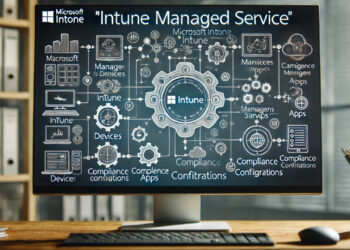Introduction
In 2025, the business landscape is more complex, dynamic, and technology-driven than ever before. Companies are no longer just concerned with operating efficiently; they must also respond quickly to market changes, meet rising customer expectations, and leverage data to make informed decisions. This is where Enterprise Resource Planning (ERP) software comes into play. ERP systems help businesses manage a wide array of functions—such as accounting, procurement, supply chain, human resources, and customer relations—within a single integrated platform.
As companies move into the new year, it’s clear that ERP software has become a cornerstone of business management success. In this article, we’ll explore why ERP software is essential for businesses in 2025, and how it can drive growth, efficiency, and competitiveness.

Business management software solutions are applications that ease the overall running of affairs from different business departments. They can increase efficiency, and definitely improve knowledge and work, especially when using software with data analysis features.
- Improved Efficiency (30%): Streamlining workflows and automating tasks.
- Better Decision-Making (25%): Real-time, data-driven insights for faster and more accurate decisions.
- Cost Savings (20%): Reducing operational costs through resource optimization.
- Enhanced Collaboration (25%): Promoting communication and teamwork across departments.
What is ERP Software?
ERP software is a suite of integrated applications designed to help organizations manage and automate various aspects of their business processes. Traditionally, companies relied on separate software for different departments, such as finance, human resources, and supply chain management. However, this fragmented approach often led to inefficiencies, data silos, and communication gaps.
An ERP system eliminates these issues by centralizing all business operations into one platform. With modules that cover key functions, such as:
- Finance and Accounting: Automates bookkeeping, budgeting, and financial reporting.
- Human Resources (HR): Manages employee records, payroll, and performance evaluations.
- Supply Chain Management (SCM): Tracks inventory, orders, procurement, and vendor relationships.
- Customer Relationship Management (CRM): Helps manage customer data, sales, and marketing campaigns.
ERP software can also provide a single, unified database, allowing for real-time updates and reporting across all departments.
The Increasing Complexity of Business in 2025
As we enter 2025, businesses are facing unprecedented challenges and opportunities. Globalization, technological advances, and evolving customer expectations are forcing companies to rethink how they operate. The growing complexity of modern business environments makes it clear that traditional methods of management are no longer enough.
1. Rising Customer Expectations
Today’s consumers expect faster, more personalized experiences. Whether it’s an e-commerce platform offering tailored recommendations or a financial service providing instant insights, companies must meet these heightened expectations or risk losing market share. ERP systems enable businesses to respond quickly to these demands by consolidating data across departments, facilitating faster decision-making, and delivering real-time customer insights.
2. Increased Data Volume
Businesses are collecting more data than ever before. From tracking website traffic to managing sales transactions, data is generated at an exponential rate. Managing this information and ensuring its accuracy and accessibility is vital for businesses that want to stay competitive. ERP software helps streamline data collection, storage, and analysis, ensuring that businesses can leverage data for strategic decision-making.
3. Remote Work and Decentralized Teams
The shift to remote and hybrid work models requires businesses to rethink their approach to collaboration and communication. With teams spread across different locations, a cloud-based ERP system offers a centralized platform where employees can access the data and tools they need, regardless of their physical location. This flexibility not only increases productivity but also enhances team collaboration across geographies.
Key Benefits of ERP Software for Business Management
Implementing ERP software offers numerous advantages for businesses in 2025. These benefits are essential for streamlining operations, improving decision-making, and enhancing collaboration.
1. Improved Efficiency and Productivity
One of the primary reasons companies adopt ERP software is to boost efficiency. Traditional business processes often involve manual data entry, paper-based workflows, and redundant tasks. ERP software automates these processes, reducing the need for manual intervention and minimizing human error.
For example, instead of manually entering purchase orders into separate systems, ERP software automatically generates orders based on inventory levels and sales forecasts. This automation saves time, reduces errors, and frees up employees to focus on more value-added tasks.
Moreover, ERP systems often come with integrated reporting tools, so decision-makers can access insights and analytics with just a few clicks. This quick access to real-time data enables managers to make informed decisions faster.
2. Better Decision-Making
Data is the lifeblood of modern businesses, and ERP software provides a comprehensive view of an organization’s performance. With all business data stored in a centralized database, companies can generate detailed reports and dashboards that reflect key performance indicators (KPIs).
Having this visibility into operations is critical for decision-makers who need to identify opportunities for improvement, monitor project progress, and optimize resource allocation. For example, the finance team can track cash flow in real time, while the supply chain team can anticipate inventory shortages and plan accordingly.
ERP systems also include advanced analytics capabilities, such as predictive analytics and business intelligence tools, that help businesses identify trends and make data-driven predictions.
3. Cost Savings
One of the most compelling reasons to implement ERP software is its potential for cost savings. By consolidating business functions into one integrated system, businesses eliminate the need for separate software licenses, reducing IT costs. Furthermore, ERP systems optimize resource allocation and reduce waste.
For instance, ERP software allows businesses to track inventory levels in real time, helping them avoid overstocking or stockouts, both of which can be costly. Additionally, automation helps reduce manual labor and error rates, leading to lower operational costs.
4. Enhanced Collaboration and Communication
In a globalized business environment, effective communication and collaboration are essential for success. ERP software provides a centralized platform where employees across departments can share information, collaborate on projects, and communicate in real time.
For example, the sales team can access up-to-date inventory data, enabling them to provide customers with accurate delivery timelines. Meanwhile, the finance team can track customer payment histories, ensuring timely follow-ups.
Furthermore, many ERP systems offer collaboration tools, such as shared calendars, messaging, and task management features, which further enhance team coordination.
ERP Software and Data-Driven Decision Making
In 2025, data-driven decision-making is no longer a luxury—it’s a necessity. Businesses that leverage their data to gain insights and make informed decisions are more likely to succeed in a competitive marketplace. ERP software plays a crucial role in this process by providing a single source of truth for all business operations.
Real-Time Data for Quick Decision-Making
ERP systems enable businesses to access real-time data, which is crucial in a fast-paced market. For instance, if a business sees a sudden spike in demand for a particular product, the system can provide real-time insights into inventory levels, order statuses, and customer demand. This allows decision-makers to adjust their strategies quickly.
Enhanced Reporting and Analytics
ERP software includes powerful reporting tools that allow businesses to generate detailed financial reports, sales forecasts, and performance metrics. These reports can be customized to suit the needs of different stakeholders, from department heads to executive teams. Moreover, ERP systems can integrate with external analytics tools to provide deeper insights into market trends, customer behavior, and business performance.
VI. ERP Software as a Competitive Advantage in 2025
As businesses face increasing competition and a rapidly changing environment, ERP software can be a significant differentiator. Organizations that leverage ERP systems are better equipped to navigate challenges, respond to customer needs, and innovate.
Customization for Industry-Specific Needs
One of the key advantages of ERP software is its ability to be customized for different industries. Whether you’re in manufacturing, retail, healthcare, or finance, ERP systems can be tailored to meet the specific needs of your business. For example, manufacturers can benefit from ERP systems that integrate production schedules, supply chain management, and quality control. Retailers can streamline inventory management, sales reporting, and customer engagement.
Improved Customer Experience
By providing employees with easy access to customer data, ERP systems enable businesses to deliver more personalized and responsive services. For example, customer service teams can view purchase histories and service records in real-time, allowing them to address customer inquiries faster and more effectively. Similarly, sales teams can use ERP data to identify cross-selling and upselling opportunities.
ERP Software and the Future of Business Management
The future of ERP software is bright, with continuous advancements in technology shaping its development. In 2025, we can expect ERP systems to become even more powerful and versatile, integrating with emerging technologies to provide businesses with new opportunities.
Integration with AI and Machine Learning
In the near future, ERP systems will increasingly incorporate artificial intelligence (AI) and machine learning (ML) to enhance decision-making. These technologies can analyze vast amounts of data and provide actionable insights, such as predicting customer behavior, identifying operational inefficiencies, and recommending process optimizations.
Cloud-Based ERP Solutions
Cloud-based ERP systems are becoming the standard for businesses of all sizes. Cloud technology offers benefits such as lower upfront costs, scalability, and greater flexibility. As businesses expand globally, cloud-based ERP systems make it easier to manage operations from anywhere in the world, while maintaining security and compliance.
Internet of Things (IoT) Integration
The Internet of Things (IoT) is another emerging trend that will be integrated into ERP systems. IoT-enabled devices, such as sensors and smart equipment, can provide real-time data to ERP systems, enabling businesses to monitor equipment health, track shipments, and manage inventory in more sophisticated ways.
Conclusion
In 2025, ERP software is not just a tool for managing operations—it’s a vital asset that drives business success. From improving efficiency and decision-making to enabling data-driven insights and enhancing collaboration, ERP systems are crucial for staying competitive in a rapidly changing market.
Businesses that invest in ERP software will be better positioned to streamline their operations, deliver exceptional customer experiences, and make smarter decisions based on real-time data. By embracing ERP software, businesses can unlock new levels of success and growth in 2025 and beyond.






